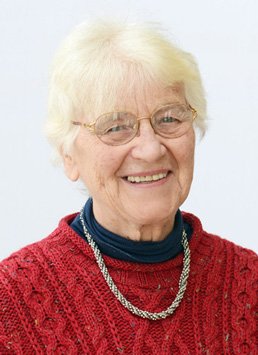Society for the Study of Women Philosophers, Inc.
a non-profit, tax-exempt educational charity 501(c)3 Internal Revenue Code
Isotta Nogarola
148-1466
Humanism, Moral Philosophy
|
Kate Lindemann's Women Philosophers pages |
 |
Remember!! Your purchase of books by clicking on Abe Books or Amazon links through this site earns us a small commission that is used to provide travel scholarships. |
Chronology
1418 Isotta Nogarola was born in to a wealthy family in Verona, Italy. It was her mother who decided that she and her sister would receive as good an education as their brothers. Martino Rizzoni, a former student of the humanist Guarino da Verona was her first tutor. She and her older sister, Ginevra, were good students in the studia humanitatis,Latin grammar, rhetoric, poetry, history, moral philosophy, and were known to write letters to some of classicists of the day.
1437 She sought official designation as a humanist and wrote to Guarinao da Verona for his approbation. He did not reply and Isotta felt shamed before the city.
1438 She wrote a second time saying:
"Why...was I born a woman, to be scorned by men in words and deeds? I ask myself this question in solitude...Your unfairness in not writing to me has caused me much suffering, that there could be no greater suffering...You yourself said there was no goal I could not achieve. But now that nothing has turned out as it should have, my joy has given way to sorrow...For they jeer at me throughout the city, the women mock me."
Guarino da Verona replied saying "I believed and trusted that your soul was manly...But now you seem so humbled, so abject, and so truly a woman, that you demonstrate none of the estimable qualities I thought you possessed."
1439 After the death of her father, she and the family moved moved to Venice where she continued the intellectual life as a single woman. In that same year in 1439 she was attacked by an anonymous writer who called himself Pliny and who claimed that no intellectual woman could be chaste. One of Nogarola's correspondents responded to the "Pliny" letter before the end of the year but the family left Venice and returned to Verona and Isolata lived with her brother's family.
She continued her studies. She exchanged ideas with several scholars including Ludovico Foscarini, a Venetian with who she debated philosophical questions. Her letters were copied and distributed; a collection of these was circulating in Venice by 1441 and in Rome by the early 1450s.
1453 She received a wedding proposal but declined it and continued to live as a single woman, not in a convent, an unusual choice at the time.
1466 Isotta Nogarola dies after several years of declining health. She remains one of the most renowned of the Humanist writers of the Renaissance.
In 1485 her niece, later ruler of Correggio, a poet and philosopher Veronicca Gambara, niece of Isotta Nogarola is born in Pralboino. One can not help but think that stories of the deceased Aunt may have inspired Veronica, especially after the death of her husband and her ascent as ruler of Correggio.
Bibliography.
Isotta Nogarola. Complete Writings: Letter book, Dialogue on Adam and Eve, Orations Edited and Translated by Margaret L. King and Diana Robin, 2003.
This page was last updated 12/12/14.
Society for the Study of Women Philosophers